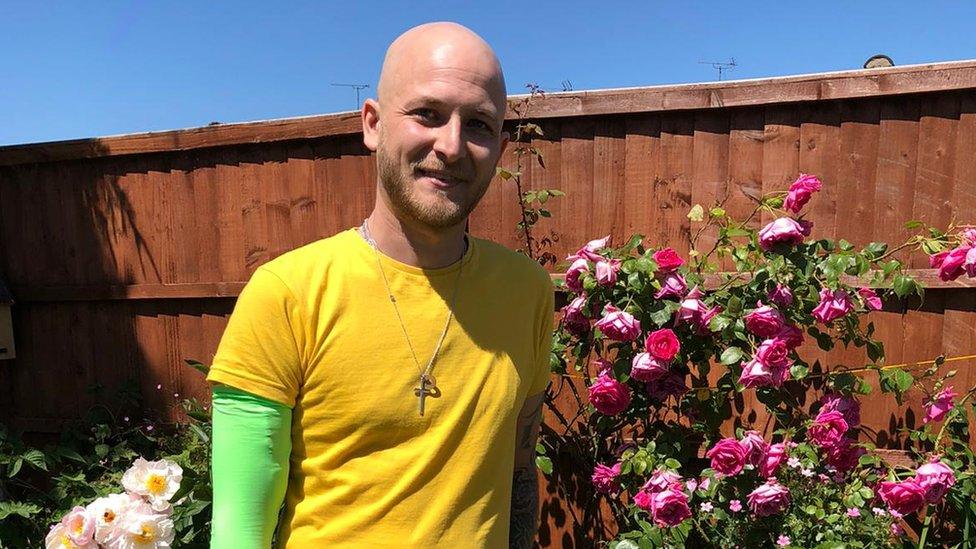Gloucester man's breathlessness was leukaemia
- Published
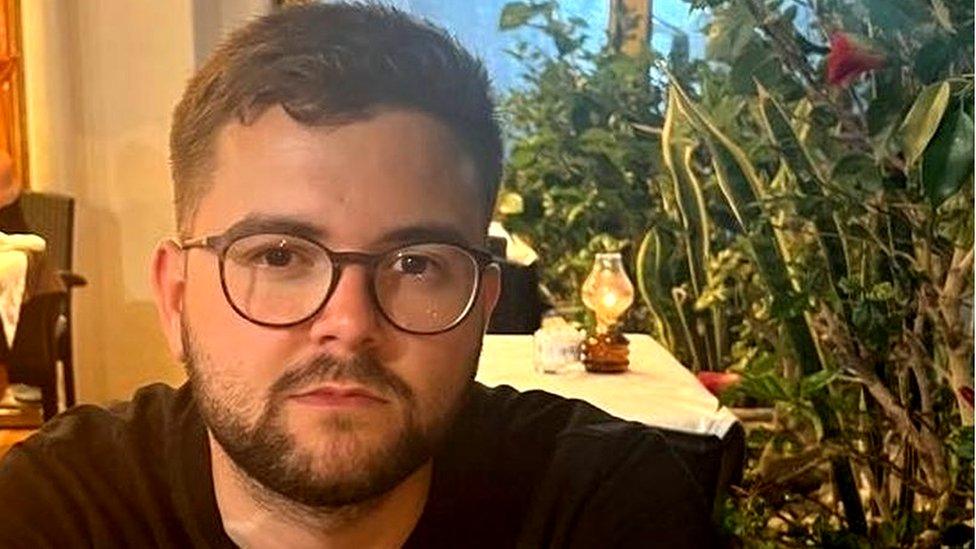
Tom now works for a bank as a money confidence expert
A young man is urging people to get symptoms checked after his breathlessness turned out to be blood cancer.
Doctors told Tom Kerton, now 21, he had a "mystery illness" after he suddenly felt his heart "pounding".
But after being sent to hospital by a GP, blood tests quickly showed it was acute lymphoblastic leukaemia, external (ALL).
Cancer Research says ALL is rare, with around 790 people each year diagnosed with the condition in the UK each year.
Mr Kerton, of Gloucester, happened to be diagnosed on World Leukaemia Day in September 2017, - just a week after his 16th birthday.
"Over the course of a week I had gotten progressively worse," he said. "I was so breathless, I was struggling to go up stairs and my heart was pounding just sitting down.
"When I look back now, those early days are a blur."
Mr Kerton was quickly put on a rigorous treatment plan lasting for three years at Gloucestershire Royal Hospital.
Four of the most widely reported symptoms of leukaemia are fatigue, bruising, unusual bleeding and repeated infections.
A Cancer Research spokesperson said ALL was rare.
"Symptoms of ALL can be similar to those caused by other illnesses. The symptoms are caused by too many abnormal white blood cells and not enough normal white cells, red cells and platelets."
Most cases develop in children, teenagers and young adults, according to the NHS.
From the latest available data in England, it is estimated that after diagnosis in those aged 15 to 24, almost seven in 10 people will survive for five years or longer.
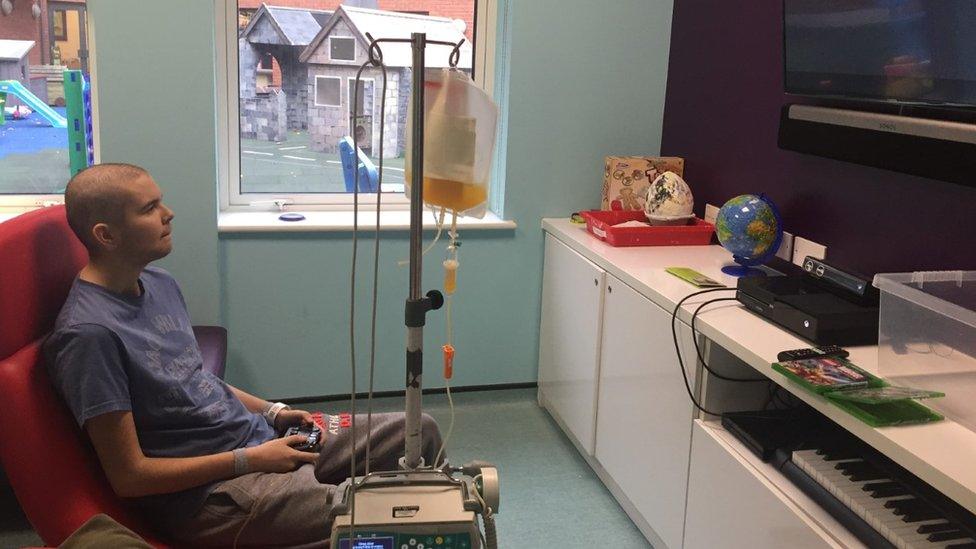
Tom was 16-years-old when he was diagnosed with leukaemia
Mr Kerton said: "The week treatment began was the week I was supposed to be starting college. I had initially told them that I would be in within a few weeks after I got back on my feet. How wrong I was to think that."
The chemotherapy Mr Kerton was put on, cyclophosphamide and methotrexate, made him so sick that at points doctors had to suspend treatment.
He developed mucositis - an inflamed gut and mouth - so badly he was unable to talk, eat or drink.
After his transfer to Bristol Children's Hospital, doctors said his was one of the worst cases they had seen.
His mother, Suzanne, took time off work as she and his father Lee took care of him.
'Diagnosis changed my life'
After finishing an intensive block of treatment, Mr Kerton then faced two-and-a-half years of taking chemo tablets every day, one treatment of intravenous chemo a month, along with other treatments every 12 weeks.
"Doing everyday things became so alien. My diagnosis changed my life in 24 hours - that's why now, five years on I live in the moment," he said.

Symptoms of acute lymphoblastic leukaemia include:
Pale skin, feeling tired and breathless and repeated infections over a short time
Unusual and frequent bleeding, such as bleeding gums or nosebleeds
High temperature, night sweats; bone and joint pain; easily bruised skin
Swollen lymph nodes; abdominal pain - caused by a swollen liver or spleen
A purple skin rash

During his treatment the coronavirus pandemic was declared and Mr Kerton was regarded as clinically vulnerable.
This meant spending much of his time in his bedroom, which was not helped when he broke his ankle falling down the stairs.
However, on 15 February 2021 he underwent his last treatment and checks since then show he remains clear of the cancer.
Now he has become an ambassador for charity Leukaemia Care.
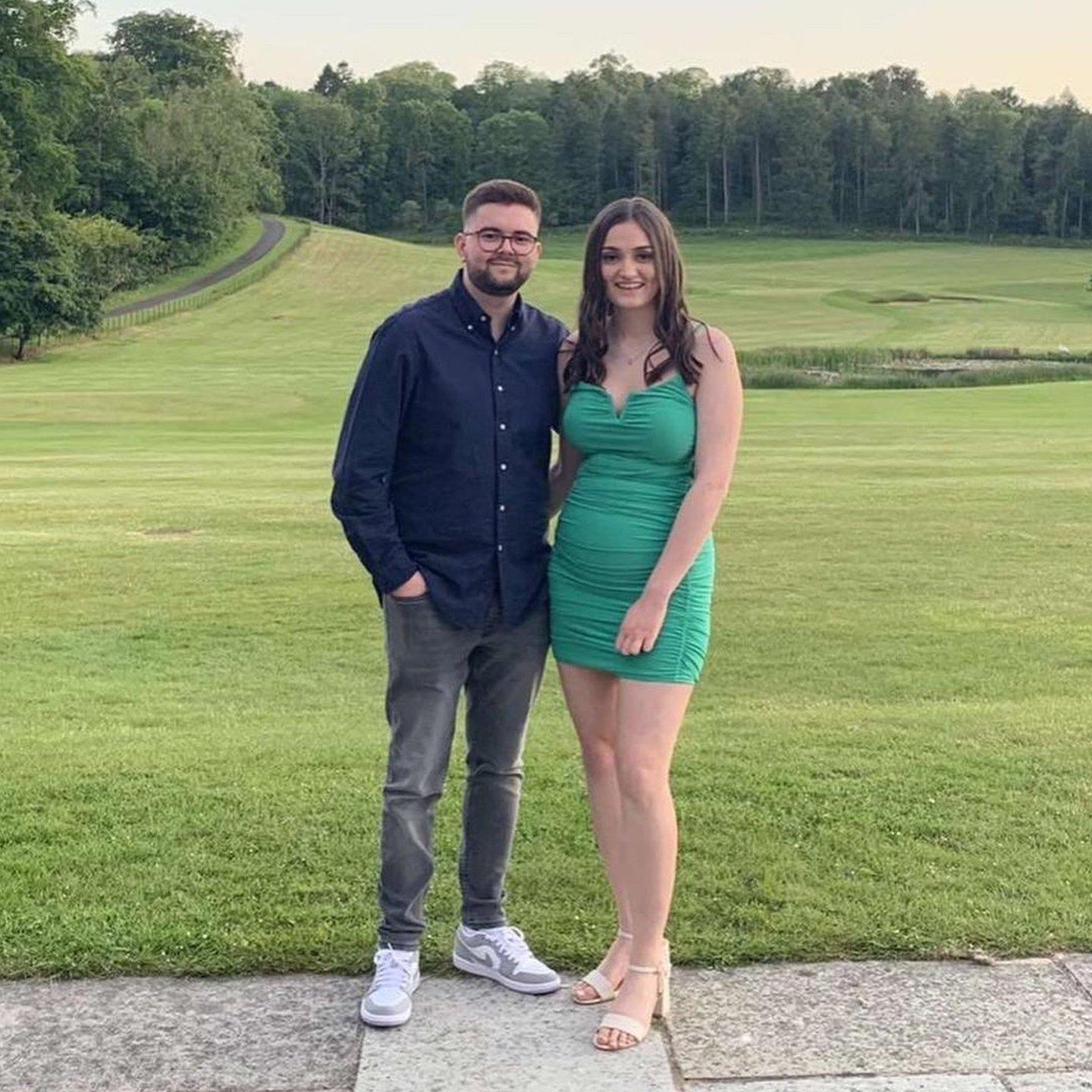
Tom Kerton and his girlfriend Ellie
Zack Pemberton-Whiteley, chief executive of Leukaemia Care said: "Less than 1% of the UK public are able to identify the four most common symptoms of leukaemia, which is extremely worrying.
"Early diagnosis of leukaemia can improve survival."
He said 10,000 people a year in the UK were diagnosed with leukaemia in the UK each year.
"It's crucial that if you think you have fatigue, bruising or bleeding or repeated infections that you contact your GP and ask for a blood test," he said.
The charity added Thomas was an example "where early intervention helped in his diagnosis and early treatment".
"Now he is in remission and living a happy and healthy life," it said.
Mr Kerton said: "Having leukaemia was an eye opener in some ways, it's given me a different outlook."
"It makes you appreciate things more, I live every second as it comes and don't worry about tomorrow."

Follow BBC West on Facebook, external, Twitter, external and Instagram, external. Send your story ideas to: bristol@bbc.co.uk , external
Related topics
- Published24 August 2022
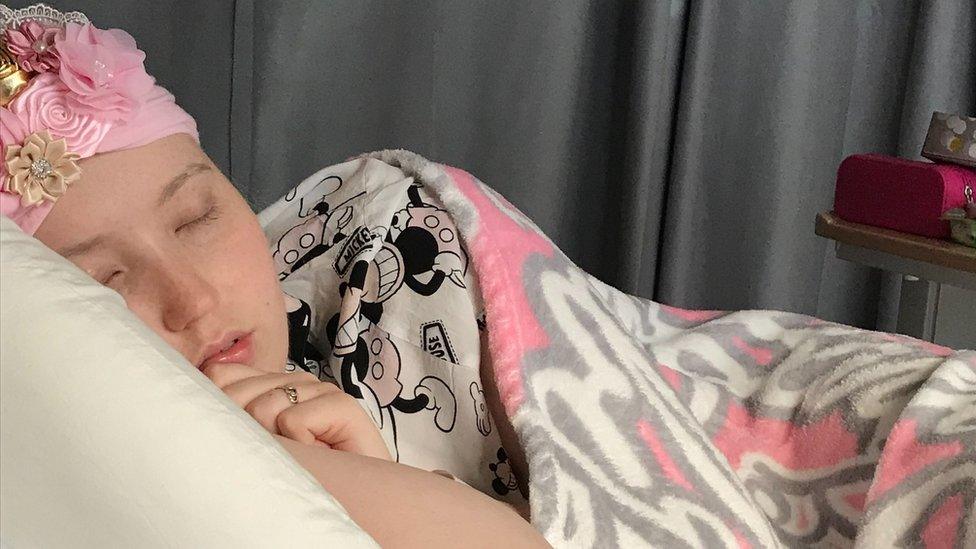
- Attribution
- Published6 June 2022
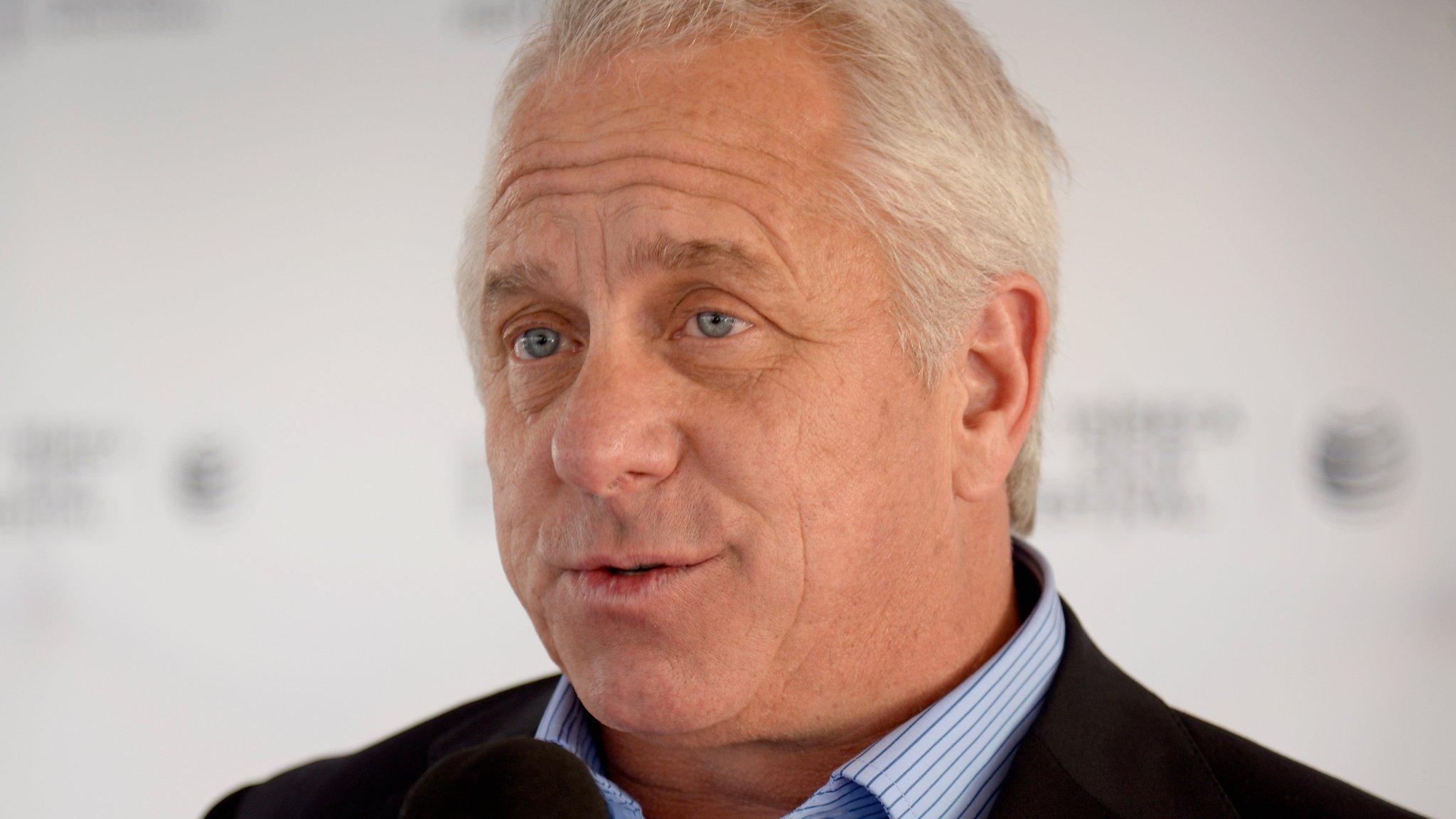
- Published17 June 2021
